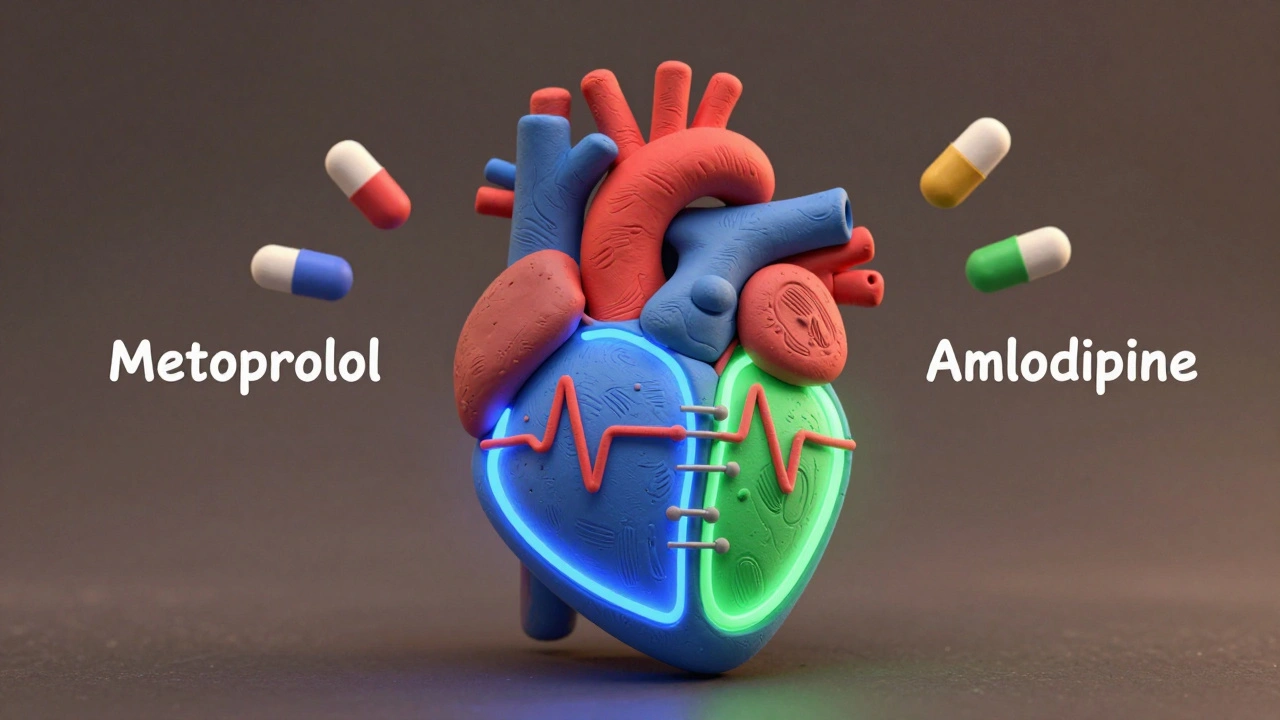Beta-Blockers: What They Are and How to Use Them Safely
If you’ve heard your doctor mention beta‑blockers, you’re probably wondering what they actually do. In plain terms, these drugs calm down the heart’s activity. They lower blood pressure, slow a fast heartbeat, and reduce the strain on your cardiovascular system.
Most people take beta‑blockers for high blood pressure, angina (chest pain), or after a heart attack to keep the heart from working too hard. Some doctors also prescribe them for anxiety tremors, migraines, or certain eye problems. The key is that they block “beta” receptors, which are part of the body’s response to adrenaline.
How Beta-Blockers Work
When adrenaline hits your body, it tells the heart to beat faster and pumps more blood. Beta‑blockers step in and stop those signals from reaching the heart muscle. The result is a slower, steadier pulse and lower pressure in the arteries.
This action isn’t just about numbers on a monitor – it helps prevent dangerous events like strokes or another heart attack. Because they affect the whole nervous system, you might notice changes in how you feel during daily activities.
Common Types & What to Watch For
There are several beta‑blockers on the market, but the most common ones include atenolol, metoprolol, propranolol, and carvedilol. Each has a slightly different profile:
- Atenolol: often used for high blood pressure; works well once a day.
- Metoprolol: popular after heart attacks; comes in immediate‑release and extended‑release forms.
- Propranolol: the go‑to for anxiety tremors and migraine prevention.
- Carvedilol: also blocks alpha receptors, which can help with heart failure.
Side effects vary but are usually mild. The most common complaints are tiredness, cold hands or feet, and a slower heartbeat that feels odd at first. Some people get digestive upset or trouble sleeping. If you notice dizziness, shortness of breath, or sudden weight gain, call your doctor right away – those could be signs of more serious problems.
Because beta‑blockers interact with many other medicines, always tell your pharmacist about every drug you take, including over‑the‑counter supplements. For example, combining them with certain asthma inhalers can make breathing harder. Alcohol can also boost the sleepy feeling, so limit drinks if you’re new to the medication.
When it comes to dosing, follow your prescription exactly. Never skip a dose or stop suddenly; the heart may react badly to an abrupt change. If you miss a pill, take it as soon as you remember—unless it’s almost time for the next one, then just skip the missed dose.
Lifestyle tweaks can make beta‑blockers work better. Keep salt intake moderate, stay active with low‑impact exercise like walking, and monitor your blood pressure at home if possible. A healthy diet rich in fruits, vegetables, and whole grains supports heart health while you’re on medication.
In short, beta‑blockers are powerful tools for protecting the heart and easing related conditions. Understanding how they work, knowing which type you have, watching for side effects, and pairing them with sensible habits will help you stay safe and feel better.
Beta-blockers and calcium channel blockers can be safely combined for hypertension and angina-but only with the right drugs and careful monitoring. Learn which combos work, which are dangerous, and how to avoid life-threatening side effects.
Dec, 11 2025
Exploring alternatives to Alprazolam is crucial for those seeking anxiety relief without the risk of dependency. In 2025, there are various effective options with unique benefits and limitations. This article breaks down these alternatives, highlighting their key features to help individuals make informed decisions about their mental health treatments.
Mar, 23 2025


